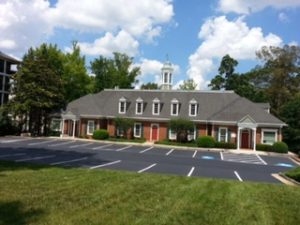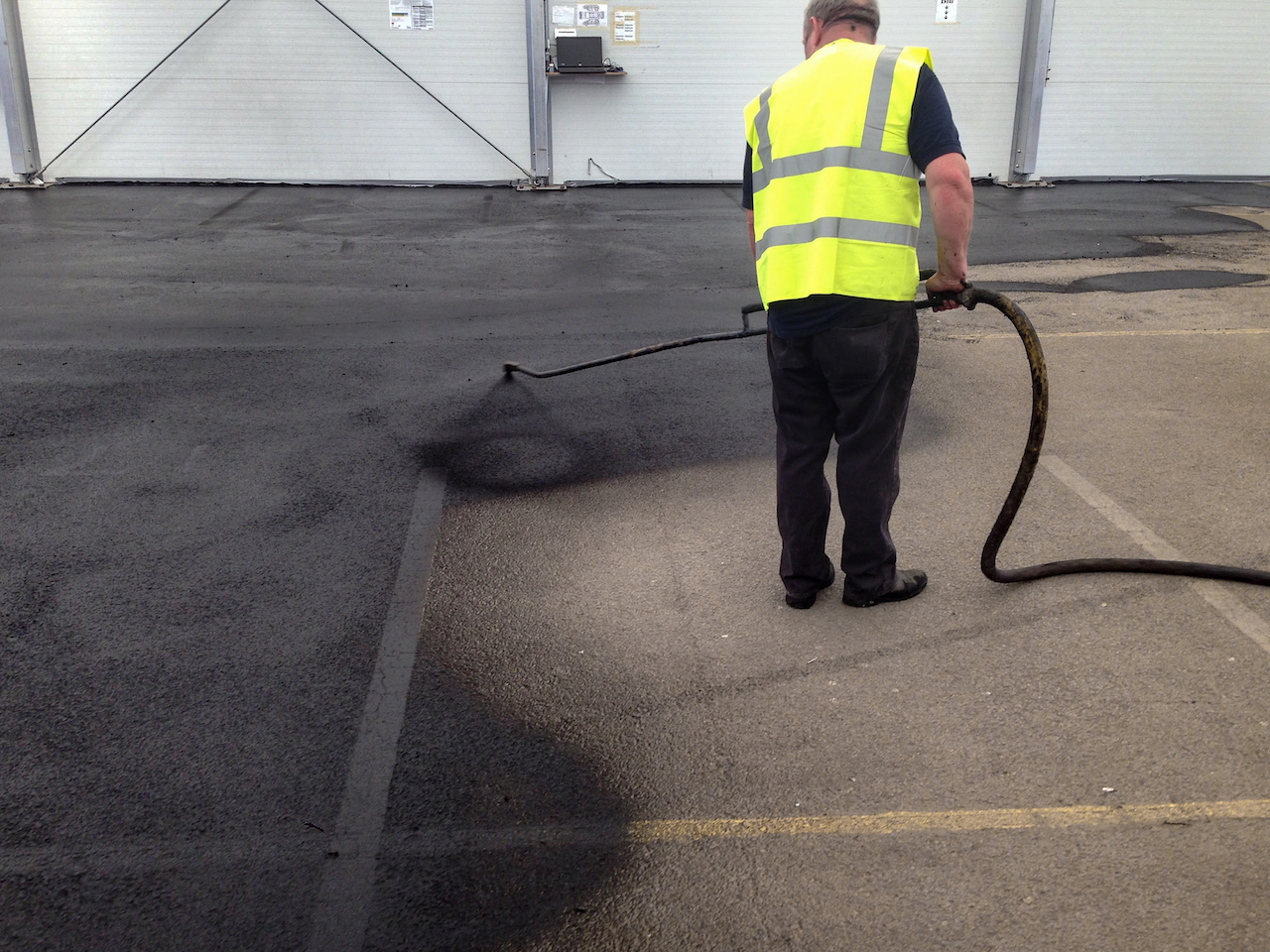
What Is the Best Weather for Sealcoating in Atlanta?
What Is Sealcoating?
Sealcoating is an important routine procedure for parking lot maintenance, but it can also be an effective maintenance procedure for asphalt walkways, bike trails, streets, jogging tracks, and tennis courts. When asphalt pavement is sealcoated regularly, its life can be extended with fewer serious repairs being required. The sealcoat material protects the pavement from oxidation, UV radiation, oil and other chemicals, and water infiltration, and it also preserves the original smooth, dark appearance of the pavement.
What Weather Conditions Are Required?
Manufacturers of sealcoat products give specific instructions for the application of their materials. By adhering to the product’s requirements, a professional asphalt company can ensure the best results.
• Temperature: Ambient and surface temperatures must be at least 50 degrees and rising, but 70 degrees is considered ideal. At temperatures below 50 degrees, the sealcoat material will not adhere well and will not dry and cure properly. Should the temperature fall below freezing before the curing process is complete, the water remaining in the sealant can turn to ice, requiring a new application of sealant if the pavement is to be protected.
• Ambient and surface temperatures should remain below 95 degrees. Contractors can sometimes manipulate an excessive surface temperature by misting the pavement. Precautions must be taken, however, and the contractor must have the expertise to know how to cool the pavement without oversaturating the surface.
• Humidity: Relative humidity needs to be no more than 60% so that the water in the sealcoat material will evaporate at the proper rate during the drying and curing stages. High relative humidity will slow these processes and necessitate longer closure time of the pavement that is being sealcoated. Additives to the sealcoat mixture are available that can speed the drying process when humidity levels are high, but they may not be appropriate if other conditions are not within acceptable ranges.
• Wind: Wind speed should be no more than 10 miles per hour. Excessive wind speeds can dry the sealcoat material too fast and may also blow debris onto the wet sealcoat, marring its finish. Some wind is desirable, especially in high humidity conditions. Wind will help disperse saturated air above the pavement, expediting evaporation.
• Precipitation: Rain or fog should not occur 24 hours before or after a sealcoat application. If precipitation is in the forecast, rescheduling the procedure may be necessary.
• Clouds: Sealcoat materials need direct sunlight to cure correctly. Clouds can slow the curing process and extend the time of the job. Shady areas that receive little sunlight also need special consideration.
MH Greeson is the company to call for sealcoating Atlanta pavements. We are a knowledgeable and experienced asphalt pavement maintenance company who will schedule your sealcoat application at the right time of year to deliver the excellent results you deserve. We serve the greater Atlanta area as well as surrounding communities. Some of our other asphalt maintenance services that you may need now or in the future include pavement striping, pavement markings, pavement repairs, asphalt crack repair, and parking lot layout and design. Give us a call at 770-335-2983 to speak with one of our experts about all your asphalt pavement needs or fill out the online form to receive a fast, free quote.




